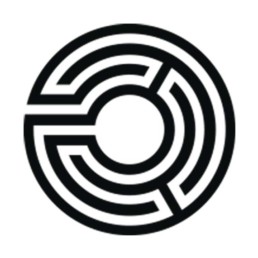
Written by Chikara Shimasaki and Bruce White
Chikara Shimasaki: Project Development Officer at OICD. Former primary school teacher, vagabond permaculturalist, part-time pizza oven master.
Bruce White: Anthropologist. A consultant to international NGOs. A Founding Director of the OICD. Former Dean at Doshisha University Kyoto, and an honorary research fellow at University College London's Department of Anthropology.
Mass displacement and migration due to climate change, resource wars and sea-level rise are now near certainty, meaning that many communities will likely experience a greater influx of ethnic, religious, linguistic and cultural diversity.
Political polarization, racial, ethnic and religious disharmony and conflict already characterise the nature of community life for increasing numbers of people around the world. The potential for the problems in the global economy to exacerbate the large-scale migration we have seen over the last decade seems higher than ever.
How, then, can we prepare our communities and our children for an increasingly complex future? Can we resist and counteract division as fear is used to turn ordinary men and women against those that are seen as different? Can we equip children with the ability to resist propaganda disseminated through social media and the pressures of their peers, parents and manipulative influencers?
Can we give them the resilience needed to fulfil their potential and maximise their development? What can we do now to better prepare the next generation to cooperate and thrive in the rapidly changing world that is unfolding?
The Potential Power of Identity
One path forward is harnessing the latest understanding of how identities work – as a psychological and social system that helps to fulfil universal human needs and solve everyday problems. With increased identity literacy we can empower ourselves to self-actualise, build resilience and find freedom from self-concepts which lead to division.
Nobel Prize Laureate Amartya Sen, states that the richness of identity comes from the fact that “…the same person can be, without any contradiction, a Norwegian citizen, of Asian origin, with Bangladeshi ancestry, a Muslim, a socialist, a woman, a vegetarian, a jazz musician, a doctor, a poet, a feminist, a heterosexual, a believer in gay and lesbian rights”. This plurality means that identities can and should be entities that empower and liberate us to fulfil our potential and stimulate us to grow.
However, when this ‘state of plurality, of multiplicity and choice’ is diminished and restricted, we are only able to see ourselves in singular ways such as members of only one ethnic, religious or political group, diminishing the ability to meet our core human needs through many different expressions of identity.
For example, during terrorist or gang recruitment or in preparation for genocide, an individual’s identity options are gradually stripped away. The subject’s sense of who they are, where they come from, and who their enemy is is rewritten. A “depluralised” identity can convince people that they are divided from one another, severing their ability to feel an affinity with manufactured enemies and potentially turning these targets of manipulation into weapons capable of orchestrating terrible acts of violence.
With the ever-expanding reach of the internet and social media, these manipulations of identities are now easier and more scalable than ever before in human history. When compounded with the disruptive climatic and demographic trends we face, these technological vulnerabilities represent an existential threat to humanity as we know it.
Identity Literacy in Education
But there is hope. Schools and educators are in a powerful position to recognise and help solve this urgent problem. By identifying the risk of ‘identity depluralisation’ in each child as well as in the community in which the school serves, we can intervene effectively in the early stages. And we can do more than just safeguard and protect. All those involved with children can learn to empower them with the understanding and mastery of how their own identities function, in turn helping them to recognise and maintain flexible and diverse identities.
Helping children to build “Identity literacy” will allow children to better understand the deeper roots of their own and others’ behaviours, build empathy, and hone their skills to effectively resolve issues at their root. As a consequence, mastering identity not only allows more effective learning experiences to take place within and beyond the classroom, but also increases the resilience and actualisation of the child and, eventually, the wider community.
We believe that identity literacy must be integrated into our education as it is the foundation of our lived experience and a critical component in how we prepare for and thrive within the increasingly complex and diverse world of the 21st Century.
The Organisation for Identity and Cultural Development (OICD) has developed a program to help educators and schools incorporate identity literacy into their classrooms, policies and communities. The organisation offers schools the ability to conduct an ‘identity audit’, as well as train staff with a CPD course ‘Helping Children to be Identity Literate’.
For more information on the OICD’s work on Identity Literacy in Education and how it might be useful to your institution, contact Chikara Shimasaki at cshimasaki@oicd.net

